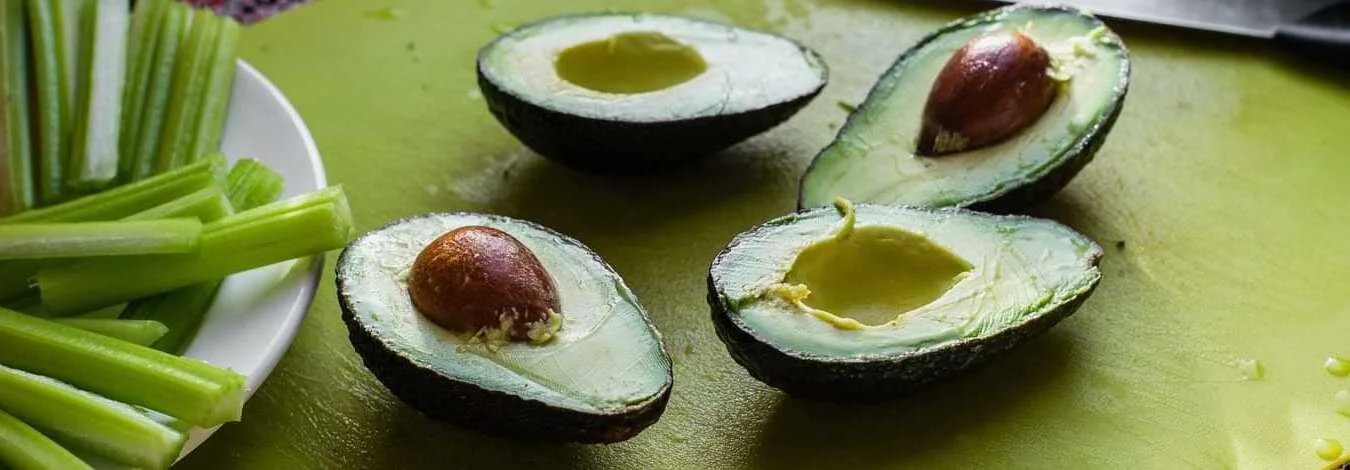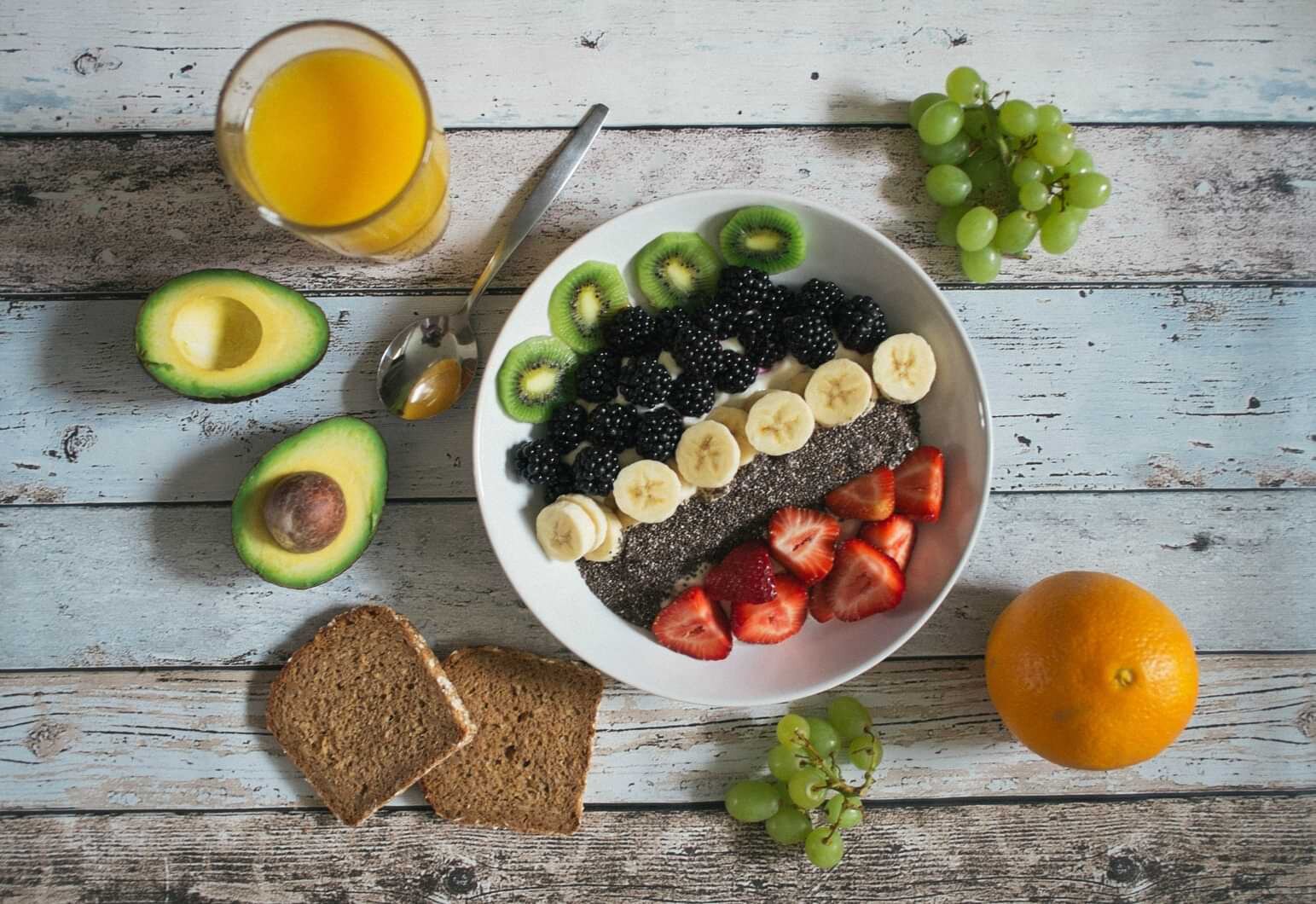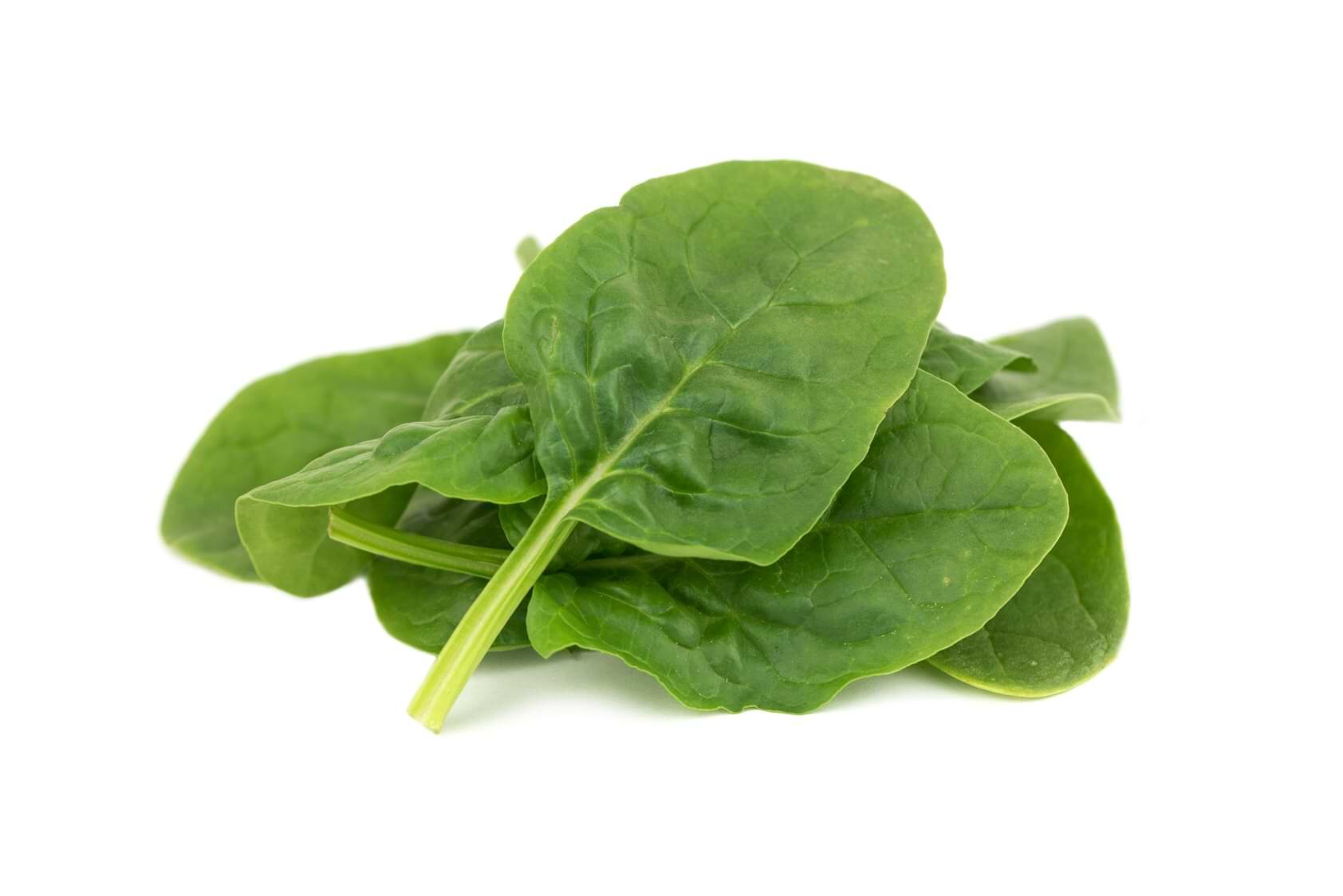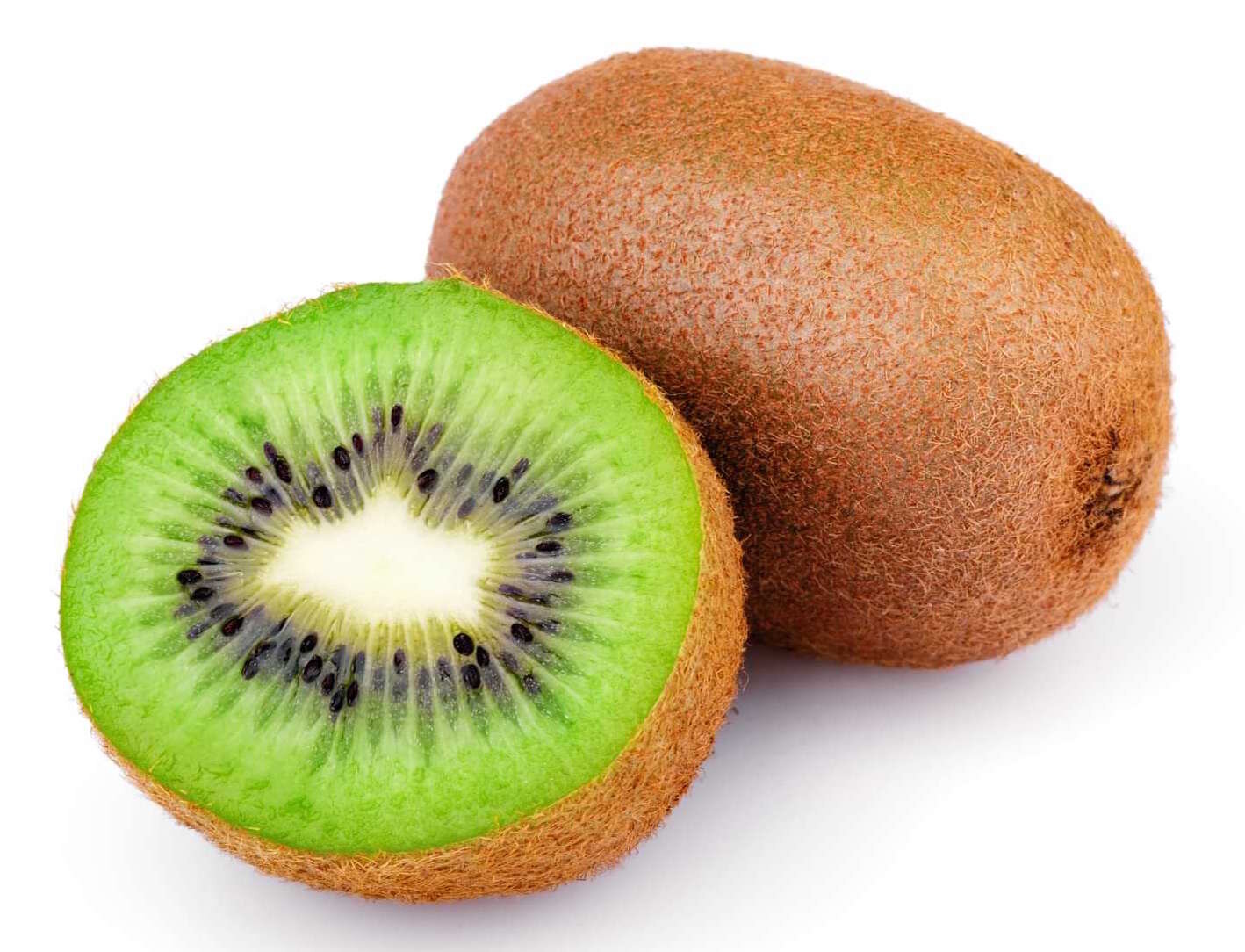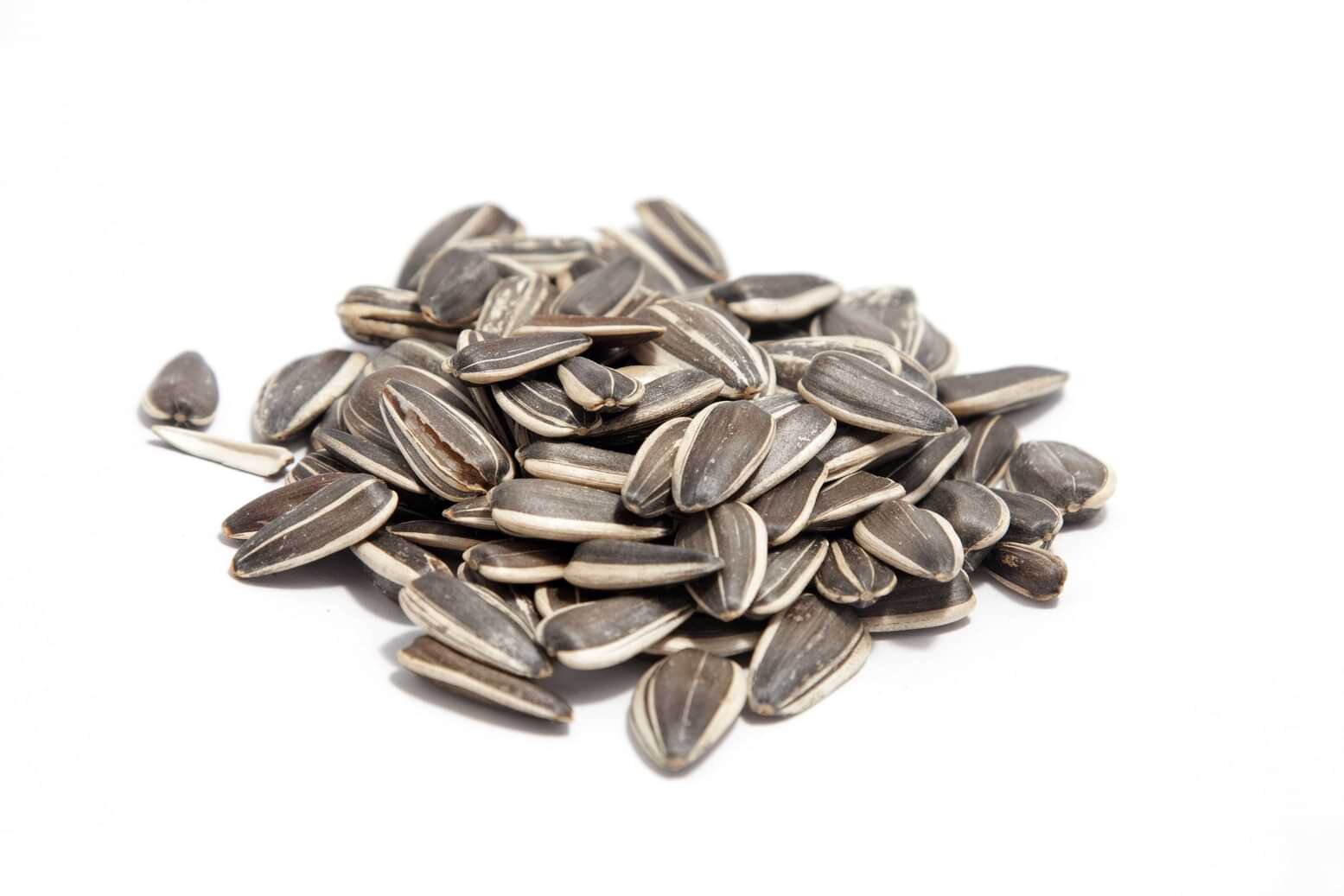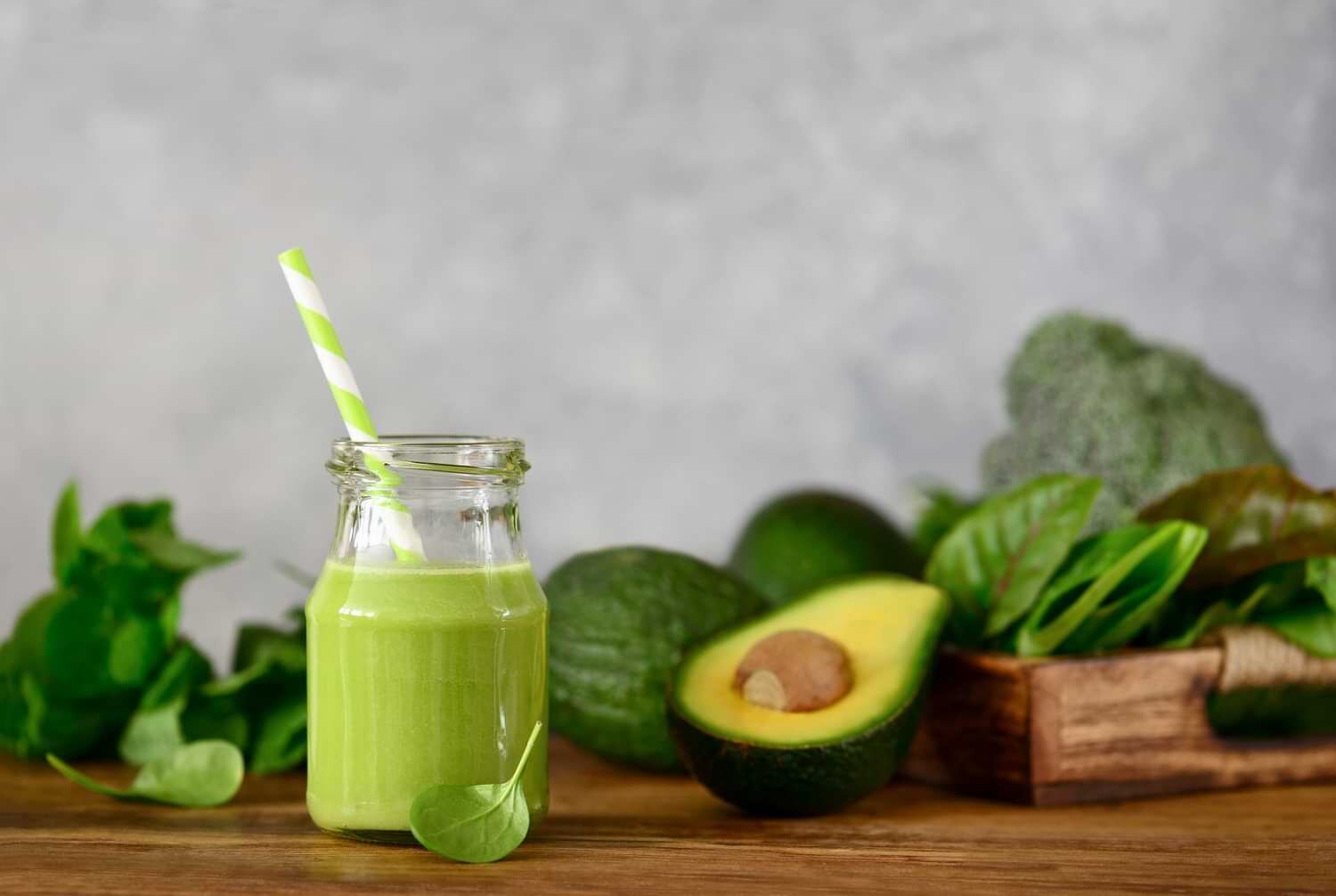WHAT VITAMINS AND MINERALS BOOST YOUR IMMUNE SYSTEM?
Have you been feeling under the weather? Looking for advice on how to build your immune system? This guide will run through all the vitamins and minerals needed in your diet to stay healthy and avoid infectious bacteria or disease. To know better about what we need, we’ll run through all the specific functions of these nutrients and what happens when deficiency occurs. We’ll also give advice on what foods are best for our overall immunity.
WHAT VITAMINS SUPPORT YOUR IMMUNE SYSTEM?
VITAMIN A
Vitamin A promotes a variety of preventive functions for our body. It primarily helps maintain vision and healthy skin, but also plays a vital role in protecting our immune system. It’s important for cellular growth and development and acts as an antioxidant. It increases the activity of our immune cells and is a powerful anti-inflammatory. Vitamin A helps the major organs in our body to stay functional and excretes harmful substances effectively.
WHAT CAN DEFICIENCY DO?
Night Blindness: A first sign of Vitamin A deficiency is the inability to see very well at night. This can lead to more complications down the line such as “dry eyes”. It’s important to pay attention to these symptoms early. Further deficiency can lead to damage of the cornea and result in blindness.
Dry Skin: Having dry skin can be a danger to infection and skin related problems. It causes it to be itchy, sensitive, and more prone to inflammation. When our skin is unable to form and repair efficiently, we are more exposed to pathogens (viruses) entering our system.
Cellular Reproduction: A lack of Vitamin A will slow down the process of cellular growth and repair. This weakens the immune system and lowers our defences to fight infection. It increases the risk of disease that affects the heart, lungs, kidneys and other organs that produce hormones. It can cause complications in children who are still growing.
Food Sources of Vitamin A: Carrots, Sweet Potato, Kale, Spinach, Beef, Lamb, Fish, Cheese, Cod Liver Oil, Watermelon
VITAMIN B
B Vitamins are also known as “energy vitamins”. When we run low on energy, our immune system is directly impacted and becomes more susceptible to viruses and infection. This vitamin is also needed for the central nervous system to function correctly. Without it, cell metabolism becomes impaired and can significantly lowers our body’s defences. When we think of immunity, we mainly think of white blood cells. However, Vitamin B6 is essential for the formation of red blood cells, which transports oxygen throughout the whole body. Our cells need oxygen to carry out activities, especially functions that protect our body from infection and disease.
WHAT CAN DEFICIENCY DO?
Weakness and Fatigue: If we don’t consume enough B Vitamins in our diet, we weaken our ability to form red blood cells and transport oxygen to all the extremities of our body. As a result, this slows down all our body’s responses and the rate of respiration. This can give us delayed reactions, increase stress and irritability, and increase tiredness. Prolonged deficiency can cause us to become physically and mentally dysfunctional altogether and result in fainting or nausea.
Poor Circulation: People with a low level of Vitamin B12 can look very pale, flushed, and even experience jaundice. This particular vitamin is needed to regulate the amount of red blood cells in the body and how much needs to be produced. An insufficient supply leads to an inadequate amount of these cells or they become abnormal in size. This results in complications such as anemia or liver disease, due to the reduction of oxygen circulating the body.
Food Sources of Vitamin B: Red Meat, Poultry, Fish, Eggs, Legumes, Leafy Vegetables, Almonds, Citrus Fruits, Shellfish
VITAMIN C
Vitamin C is an essential nutrient for having a strong and healthy immune system. It has several functions that protect the body from infection, inflammation, as well as promoting growth and development. A nutrient that supports our primary line of defence, it enhances the function of phagocytes. These type of white blood cells engulf pathogens (viruses) and other dangerous bacteria that enter the blood stream. The phagocytes ingest harmful substances and neutralize them using enzymes. Vitamin C also boosts a similar function in the bloodstream that protects our body. It promotes the development of lymphocytes (T cells and B cells). These tiny cells circulate around your system to either fight or remember infectious diseases coming back. Antibodies are proteins that act like the “infection police”, monitoring all substances that enter the body and neutralizing harmful agents that they can identify. Lastly, Vitamin C is also a powerful antioxidant. It helps break down unstable elements (or compounds) and effectively rid toxins from the body.
WHAT CAN DEFICIENCY DO?
Infectious Disease: As mentioned, Vitamin C plays a vital role in enhancing our immune system when fighting against pathogens. There’s a variety of ways it helps to fight these intruders. Apart from developing antibodies and strengthening the function of phagocytes, the vitamin is needed to stimulate the production of other chemicals such as interferons, cytokines, and nitrogen oxide. These proteins and compounds regulate and enhance the functions needed by white blood cells to fight infection when needed. Without Vitamin C, the efficiency of all these functions are reduced, allowing pathogens and other dangerous particles to move more freely throughout our system.
Growth and Repair: Vitamin C is needed for the growth and repair of cells and tissues. Like Vitamin A, we need Vit C to keep healthy skin as it stimulates the production of collagen. Collagen is needed for forming a protective layer on our skin. This prevents pathogens (viruses) from entering our blood stream. It also makes our bones, skin, and blood vessels function cohesively.
Detox: Serving as a potent antioxidant, Vitamin C helps to reduce inflammation and decrease the risk of chronic diseases. A lack of this vitamin can cause problematic issues with organs, especially in the digestive system.
Food Sources of Vitamin C: Citrus Fruits, Strawberries, Blueberries, Potatoes, Kiwis, Peppers, Broccoli, Potatoes
VITAMIN D
Most of our body’s source of Vitamin D should come from the sun. Vitamin D’s primary function is regulating and absorbing calcium and phosphate from the bloodstream. These nutrients are needed to build and maintain healthy bones, teeth and muscles. It’s also important for boosting your immune system and fighting off viruses and bacteria. It’s directly involved in aiding cell growth, reducing inflammation in the body, as well as regulating blood pressure and supporting cardiovascular health.
WHAT CAN DEFICIENCY DO?
Bone Health: Low levels of Vitamin D can make our bones and muscles frail and weak. While many believe this to be caused by calcium deficiency, it could well be caused by Vitamin D deficiency. Calcium needs Vit D to allow absorption from the blood stream and attach itself to bones. Having low amounts of this nutrient can lead to conditions such as osteoporosis or increase the risk of bone fractures. It can also increase stress levels due to the body’s inability to cope with weakness (muscular and bone).
Infectious Disease: Vitamin D has receptors attached to white blood cells for fighting infection. Low levels of the vitamin has seen an increase in autoimmune diseases such as arthritis, anemia and diabetes. It also increases susceptibly to infection. It appears that vitamin D helps the immune system stay balanced - regulating the system’s cellular activity to fight pathogens and other harmful bacteria.
Food Sources of Vitamin D: Sunlight, Salmon, Mackerel, Red Meat, Egg Yolks, Milk, Mushrooms, Cod Liver Oil
VITAMIN E
Vitamin E provides several health benefits for our immune system. It works as a powerful antioxidant and reduces the rate of damage caused by free radicals (slows the ageing process of your cells). Free radicals weaken and break down healthy cells within the body. They are formed in response to normal body processes. They affect cells by shortening their lifespan. Vitamin E decreases the risk of blood clots and stimulates our immune cells when fighting infection. It is a treatment for various degenerative diseases including high blood pressure, heart disease, cancer, skin health and neurological diseases.
The vitamin plays a crucial role in the development of T cells (white blood cells). In a healthy immune system, T cells are deployed rapidly to fight and eliminate viruses. When the immune system is weakened, T cell immune response is impaired and viruses continue to replicate throughout the body. Vitamin E counteracts this scenario by generating an increased number of T cells, deploying them to fight diseases.
WHAT CAN DEFICIENCY DO?
Skin Health: Vitamin E is the most abundant antioxidant found in human skin. Reduced levels can lead to disrupted skin function.
Muscle Weakness & Coordination: Vitamin E is essential for the central nervous system (CNS). It’s one of the body’s main antioxidants and a deficiency can result in oxidative stress. This can cause nerve and muscle damage, leading to complications such as neurological diseases (e.g spinal injuries, Alzheimers, Parkinson’s ). It also complicates the production of proteins, DNA, and contributes to the ageing process.
Food Sources of Vitamin E: Leafy Vegetables, Nuts, Seeds, Vegetable Oils, Fish, Avocado, Shellfish, Blackcurrants, Mango, Kiwi
VITAMIN K
Vitamin K has a few vital functions for our immune system. It produces two vital proteins called prothrombin and osteocalcin. Prothrombin enables blood clotting and osteocalcin regulates and protects bone health. Our body’s ability to form blood clots is essential for immunity. The most obvious reason would be avoiding blood loss, but open wounds also expose our body to pathogens and other harmful bacteria. Osteocalcin regulates the function of calcium, helping it to absorb from the blood stream. Without this protein, calcium ineffectively binds to bones. This can cause complications with bone health. Studies have shown that people with higher levels of Vitamin K in their system have higher bone density than those who don’t consume regular amounts of the nutrient.
WHAT CAN DEFICIENCY DO?
Blood Loss: As mentioned, prothrombin helps to form blood clots and stop bleeding. This is vital for immunity as it prevents conditions such haemophilia and allowing pathogens to access our body. Loss of blood also means loss of vital nutrients. This can affect numerous of functions for our body.
Bone Health: Research has shown that people who consume very little amounts of Vitamin K are more likely to develop conditions such as osteoporosis. Osteoporosis can lead to issues such as bone fractures and splints. The best solution to avoiding the condition is having a healthy diet that includes plenty of nutrients dense in Calcium, Vitamin D and Vitamin K.
Heart Health: Studies have shown that Vitamin K can reduce the risk of heart disease. Due to osteocalcin enabling the absorption of calcium, excess amounts of the mineral are not left circulating in the bloodstream. This helps to prevent atherosclerosis by reducing the amount of calcium deposits building up on the blood vessel walls (known as plaque). Reducing the build up of plaque reduces the risk of high blood pressure and arteries/vessels being damaged.
Food Sources of Vitamin K: Leafy Vegetables, Green Fruits, Beef, Pork, Chicken, Bacon, Cheese, Natto
WHAT MINERALS SUPPORT YOUR IMMUNE SYSTEM?
ZINC
Zinc is an essential mineral for immunity as it directly aids in the production of white blood cells (T-Cells). The nutrient also supports your immune system by disabling harmful bacteria’s ability to feed and become stronger. It contains proteins and other chemicals that can break down intruding agents. By starving out harmful pathogens, it makes it easier for your immune cells to overcome them. Zinc can neutralise bacteria that causes lung disease such as pneumonia. It also aids in strengthening neurological functions. The mineral is essential for stimulating our senses such as smell and taste and also keeps us more alert by boosting our metabolism.
WHAT CAN DEFICIENCY DO?
Fighting Infection and Disease: Studies have shown that taking adequate amounts of zinc can help beat a cold faster. It’s proven that having low levels of zinc can prolong certain illnesses (increased recovery time). This is most likely because zinc stops harmful bacteria from feeding and replicating. Zinc deficiency weakens the production of T-Cells and White Blood Cells, weakening the ability to break down opposing bacteria. This makes it harder for phagocytes to kill pathogens. Zinc also aids in cytokine production. Cytokines help immune cells communicate with each other when beating viruses.
Delayed Recovery: Cytokines are also needed to keep inflammation under control. Having a zinc deficiency can spread infection quicker, increase irritability, and prolong the healing process. You might notice cuts, scrapes, and bruises taking longer to heal.
Food Sources of Zinc: Whole Grains, Dairy, Red Meat, Shellfish, Beans, Legumes, Nuts
SELENIUM
We need selenium in our diet to support the endocrine, immune, and cardiovascular systems. It’s a powerful antioxidant and is one of the best nutrients for lowering oxidative stress. It reduces inflammation and enhances the performance of immune cells. Selenium improves the functions of our thyroid gland. It helps metabolise thyroid hormones and controls growth and reproduction.
WHAT CAN DEFICIENCY DO?
Thyroid Disease: Having low levels of selenium in our system has been linked to contracting thyroid disease. It also makes you susceptible to infectious diseases or even turn harmless pathogens into life-threatening illnesses. Fatigue and muscle weakness are frequent symptoms associated with with selenium deficiency. This might be related to thyroid dysfunction.
Food Sources of Selenium: Seafood, Brazil Nuts, Chicken, Beef, Pork, Fish, Ham, Cottage Cheese, Eggs
COPPER
Copper is an essential micronutrient that has numerous health benefits. It helps to form red blood cells and absorb iron. This means it boosts the efficiency of circulating oxygen around your body for cellular metabolism. Having low levels of copper can cause anemia, muscle weakness and neurological problems. It also helps to maintain healthy skin. Copper destroys and inhibits the growth of microbes, fungi and bacteria, including E Coli. The body can not self produce copper so it’s important to seek adequate sources from our diet.
WHAT CAN DEFICIENCY DO?
Fighting Infection: Copper has similar functions to Zinc. Your body may struggle to produce immune cells when levels are low. This can drastically reduce your white blood cell count, compromising your body’s ability to combat infection. Copper deficiency can lead to a decrease in neutrophils and macrophages. These components sense an invasion from infectious microorganisms and alert the immune system to take action.
Central Nervous System: Copper is used by enzymes to maintain a healthy nervous system. It ensures that signals are being sent to and from the brain. A deficiency can compromise or delay signals, causing a loss of coordination or steadiness while moving or walking.
Sources of Copper: Shellfish, Mushrooms, Nuts, Seeds, Leafy Greens, Oysters, Sweet Potatoes, Sesame Seeds
WHY IS FIBER IMPORTANT FOR YOUR IMMUNE SYSTEM?
Although fiber is not classified as a vitamin or mineral, we thought it would be important to give it a mention. Fiber is needed to stimulate the production of T-cells and essential for “gut health”. This macronutrient contributes to feeding “good bacteria” in our digestive system. This avoids developing issues such as constipation and inflammation. It also steers us away from diseases in the digestive tract such as colon cancer. Fiber plays a major role in keeping our cardiovascular system healthy. It breaks down complex molecules (food) to have access to nutrients. It also betters our circulation and rids harmful toxins from the body. It’s recommended that we get about 20-25 grams of fiber in our diet every day.
WHAT FOODS ARE A GREAT SOURCE OF FIBER?
WHOLEGRAINS
Barley
Bran Flakes
Quinoa
Whole Wheat
Oatmeal
Brown Rice & Pasta
Popcorn
FRUITS AND VEGETABLES
Berries
Apples
Pears
Broccolis
Peas
Potatoes
Spinach
Citrus Fruits
WHAT VEGETABLES BOOST YOUR IMMUNE SYSTEM?
BABY SPINACH
CONTAINS: VITAMINS (A, B, C, E, K), IRON, MAGNESIUM, ZINC, CALCIUM, PHOSPHORUS, FOLATE
Low in calories, Baby Spinach is rich in multi-vitamins and other minerals that boost your immune system. Rich in Vitamin K and magnesium, it is one of the most important nutrients for protecting bone health and forming blood clots. Just 1 cup of Baby Spinach can meet your daily recommended allowance of Vitamin K. It also contains a high dose of Vitamin A, C, and E as well as zinc and dietary fiber. It’s a well rounded nutrient that improves vision, lowers bad cholesterol, boosts the functions of our digestive system, and fights harmful bacteria (pathogens and other foreign substances). Adding sufficient amounts of fiber to our diet helps to control blood sugar levels and promote weight loss. This also prevents heart conditions such as high blood pressure and diabetes from occurring.
RED BELL PEPPER
CONTAINS: VITAMINS (A, C, E, K), POTASSIUM, FOLATE
Red Bell Peppers are low in calories and loaded with nutrients that protect your immune system. One of the richest vegetables in Vitamin C, a single pepper can provide many powerful antioxidants. It alone provides roughly 170% of the recommended daily intake of Vitamin C per person. Consuming small amounts of this food can effectively boost the activity of your immune cells (white blood cells). It enhances the function of phagocytes to fight against infection and produces antibodies to prevent them coming back. It’s also rich in Vitamin A, B, E and K. The nutrient helps to develop and maintain functions such as sight, the formation of red blood cells, and metabolises cellular activity (especially nerve and muscle). It also contains potassium and folate which are great for protecting the heart and coping with pregnancy.
GINGER ROOT
CONTAINS: VITAMINS (B &C), IRON, POTASSIUM, PHOSPHORUS, ZINC, FOLATE, RIBOFLAVIN, NIACIN
There are a lot of vitamins and minerals present in Ginger. This vegetable is a powerful antioxidant and has a lot of immune-boosting benefits. It can be added to food or drank in liquid form (as tea). It contains a lot of anti-inflammatory agents and helps prevent nausea or bowel related conditions. It is a “go-to” nutrient for reducing irritation and inflammation in the digestive system. Ginger is also believed to be good for preventing high blood pressure. It contains a compound named gingerol that acts as a blood thinner and relaxes the blood vessels. It also boosts our immunity by supporting our circulation. There is iron and zinc in ginger which help transport oxygen around our body and fight infectious bacteria respectively.
BROCCOLI
CONTAINS: VITAMINS (A, B, C, D, K), CALCIUM, POTASSIUM, IRON, PHOSPHORUS, ZINC, MAGNESIUM, FIBER
Broccoli is the ultimate vegetable for our immune system. It’s charged with almost every vitamin that helps grow and repair our immune cells. It is one of the strongest nutrients for promoting bone health, as it contains both Vitamin K and Calcium. This means it’s also good for regulating blood flow as it helps absorb calcium from the bloodstream. Having a large array of vitamins, the nutrient is great for maintaining all our senses and supporting all the functions carried out by immune cells (T-Cells, White Blood Cells). Broccoli also provides a satisfactory amount of protein and dietary fiber, promoting cell recovery and breaking down compounds to maintain a healthy digestive and cardiovascular system.
GARLIC
CONTAINS: VITAMINS (B,C), SULFUR, SELENIUM, COPPER, MAGNESIUM, POTASSIUM
Garlic has some unique ways of boosting our immune system. It helps to absorb zinc a lot easier in our system, utilising it as a powerful agent when fighting against viruses. Garlic can absorb the mineral because it contains high levels of sulfur. Including this nutrient in your diet, it will help beat a common cold and weaken the activity of incoming pathogens. It also provides Vitamins B & C and supports the development of T-Cells in the bloodstream.
WHAT FRUITS AND NUTS BOOST YOUR IMMUNE SYSTEM?
CITRUS FRUITS
CONTAINS: VITAMINS (B, C), COPPER, POTASSIUM, FOLATE,CALCIUM, FIBER
Citrus fruits are an efficient immunity booster as they contain large amounts of Vitamin C. These fruits have an abundance of nutrients that are good for regulating the activities of our immune cells. They include B Vitamins, copper, potassium, magnesium, phosphorus, folate, calcium and fiber. Protecting our system against viruses and inflammation, these fruits are also great for preventing issues with our heart, bones, and digestive system. Citrus fruits play a crucial role in protecting our body from harm caused by free radicals. They provide this form of immunity as they contain plant based nutrients (phytonutrients) called flavonoids.
Research has provided evidence that flavonoids provide therapeutic benefits against certain cancers, neurological disorders and heart disease (diabetes, cvd, atherosclerosis). It’s also said to reduce oxidative stress and reduce bad cholesterol (triglycerides). Flavonoids also help regulate blood sugar levels by controlling the level of insulin in our bloodstream. This aids in weight loss and overcoming or preventing conditions such as diabetes and high blood pressure.
KIWI
CONTAINS: VITAMIN C, E, K, FOLATE, POTASSIUM, MAGNESIUM
Like citrus fruits, kiwis are packed full of Vitamin C. A single kiwi can provide the daily recommended allowance of this nutrient. It is also rich in Vitamin E and Vitamin K. This means it’s very effective for concealing wounds and forming healthy bones and skin. This is essential for blocking pathogens from entering our body. Vitamin E also helps to reduce bad cholesterol and repair damaged cells. Kiwis boost the functions of our excretory system as they provide a lot of antioxidants and a good source of fiber. The fruit is ideal for anyone facing digestive issues, as it effectively breaks down compounds, eliminates toxins, and reduces inflammation. They’re needed to produce important proteins in the body such as collagen. This protein keeps our bones, cartilage, skin, and blood vessels healthy and functioning together. Like some of the other foods mentioned, kiwis are rich in magnesium and provide electrolytes. This helps to improve our neurological abilities. (sensory receptors, motor capabilities).
ALMONDS
CONTAINS: VITAMIN C, E, MAGNESIUM, POTASSIUM, CALCIUM, PROTEIN, FIBER, IRON, RIBOFLAVIN
Almonds are renounced as a superfood by many health professionals. Its high protein content make them important for cellular recovery (particularly bone and muscle) and the production of antibodies. Its high value in calcium contributes further to keeping bones and muscles healthy and strong. All the tissues in our body need protein to repair damaged cells. Almonds are also great for promoting a healthy heart. They’re packed full of Vitamin E, magnesium, potassium and fiber. They can improve your blood flow by lowering bad cholesterol in the blood vessels.
WATERMELON
CONTAINS: VITAMIN A, B, C, POTASSIUM
Watermelon is a very hydrating and immune boosting fruit that consists of 92% water. It’s great for reducing blood pressure and inflammation. Its high content in water and potassium allows for better blood flow (circulation) and improves nerve function. Watermelon is also rich in a chemical called lycopene. It’s a strong antioxidant that’s found in plant based foods that are red or pink in colour. Studies have shown that lycopene has been linked to protecting heart health, fighting cancer, and protecting our skin against sunburns. Watermelon also provides a good source of Vitamin A and C. It helps improve vision, fight infection, and absorb iron in our bloodstream.
PAPAYA
CONTAINS: VITAMINS (A,B,C,E,K), IRON, FOLATE, CALCIUM, POTASSIUM, MAGNESIUM
Papaya is an exotic fruit that has an abundance of nutrients to boost your immune system. First of all, it contains enzymes and fibers that are great for improving digestive health, avoiding bloating, inflammation, and the risk of chronic diseases. It's rich in "papain" which helps break down proteins into amino acids. Along with its high value of water and fiber, these nutrients work cohesively to clear the digestive tract while providing essential codes for cellular activity. Like watermelon, papaya provides a combined source of Vitamin C and lycopene. This makes it a great fruit for protecting skin, preventing heart disease, fighting cancerous agents and infection. Rich in other antioxidants like beta-carotene and Vitamin E, papaya helps to prevent the build up of “bad cholesterol”.
POMEGRANATE
CONTAINS: VITAMINS (B,C,K), FOLATE, FIBRE, POTASSIUM, PROTEIN
Pomegranates are proven to be one of the healthiest fruits out there. As sweet and delicious as they are, pomegranate contains some unique compounds that are richer in antioxidants and anti-inflammatories when compared to substances such as green tea, ginger, red wine or cranberry juice. Eating regular amounts of this food helps improve gut, bone, and heart health. It also stimulates the digestive system and prevents bowel related diseases. Pomegranates receive most of their health benefits from two substances called punicalagins and punicic acid. Punicic acid is known for breaking down triglycerides and lowering LDL cholesterol while also raising good cholesterol (HDL). Punicalagins are the more powerful of antioxidants and are used to detox the body from more extreme elements. The fruit also provides a lot of energy and fights infection as it is rich in Vitamins B,C and K.
WHAT PLANTS AND SEEDS BOOST YOUR IMMUNE SYSTEM?
GREEN TEA
CONTAINS: VITAMINS (B,C,E), FOLIC ACID, B-CAROTENE, POTASSIUM, CALCIUM, PHOSPHORUS, MANGANESE
Green Tea is a fast acting antioxidant and anti-inflammatory that works quickly against invading pathogens. The compounds found in green tea are able to stimulate the production of “regulatory t-cells”. These particular immune cells help prevent and suppress autoimmune diseases.
Research has shown that green tea benefits our cardiovascular health; regulating our blood glucose and insulin levels. This helps to keep our body weight under control while reducing the risk of heart disease (such as Type II Diabetes). It has also been shown to reduce blood pressure and “bad cholesterol” levels.
SESAME SEEDS
CONTAINS: VITAMINS (B,E), SELENIUM, IRON, COPPER, ZINC, CALCIUM, FOLATE, MANGANESE
Sesame seeds are extremely nutritious and great for building immunity. They have a variety of vitamins and minerals that support your immune system including Vitamin B & E, zinc, copper, selenium, iron, and calcium. The seeds provide particular nutrients that keep your immune system sharp and alert for when your body is under attack from harmful bacteria or viruses. It’s an important nutrient for speeding up the reactions of white blood cells and identifying intruders early. It’s also a great source of protein and fiber. It helps produce hormones and enzymes for bodily functions while breaking down foods to access nutrients needed for cellular activity. It’s also very effective for boosting our excretory system. Sesame seeds are great for overall health and easy to add to meals.
PUMPKIN SEEDS
CONTAINS: VITAMINS (B,C,K), PHOSPHORUS, MAGNESIUM, MANGANESE, IRON, COPPER, ZINC
Pumpkin seeds are often referred to as a superfood from nutritionists. Its an excellent source of Vitamins (B,C,K) and packed full of minerals, protein, and other chemicals that boost our overall well-being.
High in Zinc and Vitamin K, pumpkin seeds are great for regulating bone health and absorbing calcium in our body. An effective anti-inflammatory, they’re said to reduce joint pain caused by arthritis. The food provides a great source of unsaturated fats (healthy fats) such as Omega-3 and Omega-6. Known as fatty acids, these nutrients are a clean source of long lasting energy that help activate immune cells. Like sesame seeds, pumpkin seeds keep immune cells sharp and alert (zinc and copper) when reacting to incoming pathogens. Great for cell and muscle recovery (protein), pumpkin seeds also contain chemical compounds that can help prevent heart disease and insomnia. L-tryptophan helps to overcome depression and improve sleep quality. Phytosterols are another chemical in the food that’s proven to lower bad cholesterol (LDL).
SUNFLOWER SEEDS
CONTAINS: VITAMINS (B,E), ZINC, SELENIUM, IRON, COPPER, MANGANESE, POTASSIUM
Sunflower seeds are great for stimulating our immune system as they are packed full of vitamins and minerals. Firstly, the seeds contain many anti-inflammatory nutrients - vitamin e, flavonoids, and other chemical compounds that fight inflammation. Research has proven that consuming regular amounts of this food can significantly reduce this issue. Sunflower seeds also contain zinc and selenium. This helps our system continuously form and maintain immune cells. The food is very versatile, metabolising many functions that protect our body. They are rich in “good fats”. Good fats are needed to support cell growth and repair, provide energy, and protect our organs. They are also needed for absorbing nutrients and avoiding any complications. Good fats provide all these functions without the effects of “bad fats”. They keep cholesterol low and protect the heart from the build up of plaque and fatty deposits in the bloodstream. Therefore, sunflower seeds help keep our blood pressure low and cardiovascular system healthy.
TIPS TO INCLUDE VITAMINS AND MINERALS IN YOUR DIET
MAKE A SHAKE
If you find it hard to eat fruits or vegetables by themselves, then making a shake might be a great way to combine and consume these foods. If you’re not a big fan of one or the other, then you have the option of adding alternative flavours or sweeteners as you blend all the nutrients together. It’s also a helpful strategy for anyone who feels they don’t have enough time to eat the recommended servings in a day (4-5 servings of fruit and veg).
Invest in a useful blender that makes it quick and easy to get your recommended daily allowance (RDA) of vitamins and minerals in a day.
Check out this article on recipes for different shakes.
FRUIT AND FIBER
Adding fruit to your breakfast is a great tip for managing the daily recommended serving of these foods. If eating a bowl of oatmeal, cereal or muesli, chop up some fruits such as kiwis, strawberries or bananas. Berries such as blueberries and raspberries are even easier to add. This makes your morning meal more interesting and nutritious.
MAKE TEA
Some people find ginger and citrus fruits quite intense to eat in solid form or when included in meals. By making tea, you can make the strength of the flavours more mild or stronger. Tea can make certain foods easier to ingest and also an option to combine flavours to suit your taste buds. For example, if you’re not a fan of ginger or lemon, you might be a fan of ginger and lemon tea with a splash of honey. It also allows you to combine different ingredients that are rich in vitamins and antioxidants. In liquid form, this acts fast on our immune system.
More of our articles
Thanks for reading our guide on immune boosting foods. For more informative articles about nutrition, please read our pieces about The 7 Components of a Healthy Diet or How To Start Eating Healthier.
References
US National Library Of Medicine: Role Of Vitamin A In The Immune System
Doctor NDTV: Health Benefits Of Vitamin A: Healthy, Vision, Skin and Much More
Doctor’s Formula: Vitamin C: Strengthens The Immune System in 20 Different Ways
Healthline: Everything You Should Know About Lymphocytes
Insider: What you need to know about Zinc and your immune system
NDTV Food: 4 Immunity-Boosting Super Seeds That You Must Include In Your Daily Diet
Better You: How does Vitamin B12 Help Your Immune System
Healthline: 15 Foods That Boost the Immune System
WebMD: Vitamin K
Science Direct: Vitamin E and Immunity






